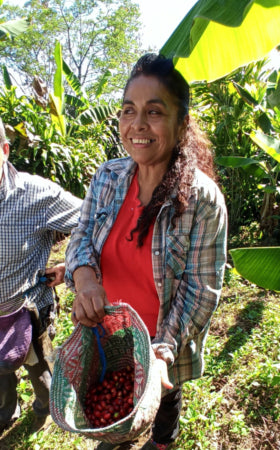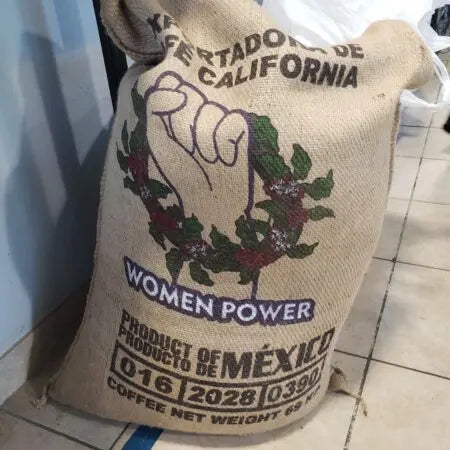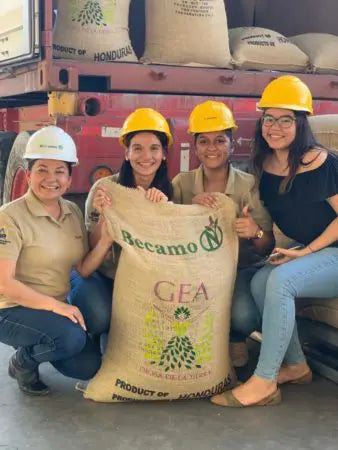 This article has been written to celebrate and promote International Women's Day (IWD) which is held annually on March 8th and is a global day honouring the social, economic, cultural, and political achievements of women. The day also marks a call to action for accelerating gender equality and advancing women's rights worldwide. Additionally, it serves as an opportunity to reflect on the progress made toward gender equality and to acknowledge the work that still needs to be done to achieve full gender equality. This years theme is #inspireinclusion
This article has been written to celebrate and promote International Women's Day (IWD) which is held annually on March 8th and is a global day honouring the social, economic, cultural, and political achievements of women. The day also marks a call to action for accelerating gender equality and advancing women's rights worldwide. Additionally, it serves as an opportunity to reflect on the progress made toward gender equality and to acknowledge the work that still needs to be done to achieve full gender equality. This years theme is #inspireinclusionWomen in the coffee industry
Women play a significant role in the global coffee industry, contributing to both the cultivation and production of coffee beans. Although they face significant challenges there is an increasing number of women-owned and women-run coffee farms.
Workforce Participation - Women make up a substantial portion of the agricultural workforce in coffee-growing regions around the world. They are involved in all aspects of coffee farming, including planting, pruning, harvesting, and processing.
Ownership and Land Rights - In many coffee-producing countries, women have limited access to land ownership and control, which can impact their ability to fully participate in and benefit from the coffee trade. However, there are initiatives focused on promoting land rights for women farmers and empowering them to take ownership of their land. As a result there is an increasing number of specialty coffee produced solely by women.
Economic Empowerment - Coffee farming can provide economic opportunities for women, allowing them to generate income for themselves and their families. By participating in the coffee value chain, women farmers can gain financial independence and improve their livelihoods, and in doing so take themselves out of poverty.
Community Development - Women coffee farmers often play key roles in their communities, not only as producers but also as leaders and decision-makers. They contribute to the social and economic development of their communities by investing in education, healthcare, and other essential services.
Challenges and Opportunities - Women coffee farmers face various challenges, including limited access to resources, market opportunities, and training. However, there are initiatives and organisations dedicated to supporting women in coffee farming, providing them with access to financing, technical assistance, and market linkages.
Overall, women coffee farmers play a vital role in the coffee industry, and empowering them can lead to more sustainable and inclusive development in coffee-growing regions.
What is the percentage of women in the coffee industry?
The percentage of women involved in coffee farming varies depending on the region and the specific context within each country. While there is no global statistic that provides an exact percentage, it is estimated that women make up a significant portion of the agricultural workforce in coffee-producing countries.
In some regions, such as parts of Africa and Latin America, women may account for up to 70-80% of the labour force in coffee farming. However, their involvement is often underrepresented in official statistics and data collection efforts.
Additionally, women's roles in coffee farming extend beyond fieldwork to include responsibilities such as managing household finances, caring for families, and participating in community activities related to coffee production. Therefore, their contributions to the coffee industry are multifaceted and essential for the sustainability and success of coffee-growing communities.
The International Women's Coffee Alliance
The International Women's Coffee Alliance (IWCA) is a global network dedicated to empowering women in the coffee industry. Founded in 2003, the IWCA aims to promote gender equity and women's empowerment throughout the coffee value chain, from farming to trading to consuming. Here are the key aspects of their work:
Empowerment - The IWCA seeks to empower women in coffee-growing communities by providing them with access to resources, training, education, and networking opportunities. This empowerment often translates into improved livelihoods, increased income, and greater decision-making power for women within their households and communities.
Advocacy - The organisation advocates for gender equality within the coffee industry, working to address issues such as women's access to land, credit, and technology. By raising awareness about the importance of gender equity, the IWCA encourages stakeholders in the coffee sector to adopt policies and practices that support women's rights and opportunities.
Networking and Collaboration - The IWCA serves as a platform for women in the coffee industry to connect, share experiences, and collaborate on initiatives that benefit their communities. Through regional chapters and international conferences, members of the IWCA exchange knowledge, best practices, and strategies for overcoming challenges.
Market Access - The IWCA helps women coffee producers access international markets by providing them with market information, trade opportunities, and connections to buyers who value gender equity and sustainable sourcing practices. By facilitating market access, the organization enables women to earn fair prices for their coffee and improve their economic well-being.
Capacity Building - The IWCA offers training programs and technical assistance to women involved in coffee production, processing, and marketing. These capacity-building efforts focus on agronomy, quality control, business management, and other skills needed to succeed in the coffee industry.
Sustainability - The IWCA promotes environmentally sustainable practices in coffee production, recognizing the importance of protecting natural resources for future generations. By integrating gender considerations into sustainability initiatives, the organization helps ensure that women play a central role in efforts to make the coffee industry more environmentally friendly and resilient to climate change.
The International Women's Coffee Alliance plays a crucial role in advancing gender equity, economic empowerment, and sustainability within the global coffee sector, ultimately benefiting women, their families, and coffee-producing communities worldwide.
"When women are empowered communities thrive."
Well Roasted Coffee produced solely by women

Mexican Women Power Zongolica (WPZ) Coffee
Our Mexican Women Power Zongolica (WPZ) coffee is a very special type of specialty coffee produced in the Zongolica region of the Mexican state of Veracruz. What sets this coffee apart is not just its flavour profile but also the unique story behind its production.
This coffee is cultivated and harvested predominantly by Nahuas indigenous women from the area, hence the name "Women Power!" The 20 women owned coffee farms who produce it have taken charge of the coffee production process, from planting and nurturing the coffee plants to harvesting the ripe coffee cherries and processing them - all following the same methods to ensure consistency of quality.
The coffee beans are typically grown at high altitudes in the lush mountains of Zongolica, which provides optimal conditions for coffee cultivation. The altitude, combined with the region's climate and soil composition, contributes to the distinctive flavour profile of the coffee.
Women coffee farmers play a crucial role in the Nahuas indigenous group in Mexico, particularly in regions like Zongolica where coffee cultivation is prevalent. While coffee farming has traditionally been perceived as a male-dominated activity, women are increasingly involved in all aspects of the coffee production process, from planting and harvesting to processing and marketing.
Mexican Women Power Zongolica coffee is often characterized by its medium body, balanced acidity, and notes of chocolate, tropical fruits, brown sugar, and citrus. It is often described as smooth and flavourful, with a pleasant aroma.
Apart from its taste, what makes this coffee particularly noteworthy is the empowerment it brings to the indigenous women of Zongolica. By actively participating in the coffee production process and having ownership over their work, these women are not only able to provide for their families but also gain economic independence and social recognition in their communities.
The production of Mexican Women Power Zongolica coffee highlights the importance of gender equality and empowerment in the coffee industry, showcasing how women can play a central role in all aspects of coffee production, from farm to cup.

Organic Honduras Coffee by GEA Producers
As well as our Mexican Zongolica coffee we have another specialty Arabica coffee produced solely by women. Our Organic Honduras GEA coffee is the unique creation of over 400 women coffee farmers who make up the GEA (pronounced hay-uh) meaning the Goddess of the Earth in Greek Mythology, emphasising the organic and environmentally friendly aspects of the coffee production.
Highlighting women's involvement in the coffee industry through products like Gea Organic coffee can empower and support female coffee farmers. Supporting women coffee producers can have positive social and economic impacts on their communities. By providing opportunities for women to participate in the coffee value chain, such as through cooperatives or direct trade relationships, it can lead to increased income, better access to resources, and improved livelihoods for women and their families.
The resulting coffee is well balanced with a smooth body and fruity acidity, it has clean and sweet aromas with notes of caramel, almond, toffee, apple and apricot. This coffee stands as a tribute to all the women coffee farmers and workers and their remarkable efforts and achievements. And although at the time of writing this it is out of stock, we are expecting a new crop in March 2024 so not too long to wait.
So, here’s to all the women all over the world that make our love of specialty coffee possible. To all the women whose roles in coffee farming extend beyond fieldwork to include managing household finances, caring for families, and community activities related to coffee production. Without them we would not be enjoying such excellent coffee.
Further reading:
You can follow the work of many other organisations who work to improve gender equality in the coffee industry across the world.
Fairtrade Organisation - How Fairtrade addresses gender equality
Oxfam - Four steps to transform women's lives in coffee farming
International Coffee Organisation - Gender Equality in the coffee sector
The Rain Forest Alliance - Brewing Gender Equality in the coffee industry
